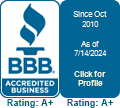A new study was released about caring for children with MRSA or Staph (and I’ve included some precaution tips below). This study shows that family members are nearly 10 times more likely to be colonized by MRSA bacteria if they have a child with a Staph infection in their household. The Washington University School of Medicine study also shows that household members are more likely to be colonized with Staph aureus than the general public as well (Arch Pediat Adoles Med. 2012; 166(6): 551-557).
The study was based on 183 infected children, age 6 months to 20 years, all with Staph skin infections. The total number of household members in the study was 609. For the household members, 19% were MRSA colonized and 53% were Staph colonized. Nationally, MRSA colonization is only 2% and Staph colonization is only 30%, according to the Centers for Disease Control and Prevention. The study also shows that of family members with MRSA colonization, 53% were parents but only 29% were siblings.
There were some limitations in this study: based upon the study design, it did not illuminate the direction of transmission between family members and an infected child.
What this means if you have a child with MRSA or Staph
Because MRSA and Staph are easily transmissible, they can transfer between family members or other people (see steps below to reduce this chance). And because parents are more likely to be in close contact with an infected child, the risk of colonization appears to be greater for parents. As a parent, if you become colonized with the bacteria, it means you are a carrier, and it doesn’t mean that you will become infected. It may lead to you passing the bacteria back and forth to other family members.
It’s important to realize that someone colonized with MRSA or Staph can carry the bacteria without every becoming infected or showing any symptoms. To keep things in perspective, nearly one third of the country are carriers of Staph bacteria on their skin, most of whom never have any problems with Staph infections.
To actually become infected usually requires a weakened immune system, and/or an easy route for infection, such as a cut, an open wound or a recent surgery. Newborn babies with MRSA can also get infected from their mothers during birth. So while being a carrier may never lead to an infection, it does allow one to spread Staph to other people and to contaminate surfaces you touch.
The most common way for these bacteria to spread are through directly touching someone who is infected or by touching a contaminated object or surface. These bacteria can also spread in the air, especially in close quarters. In fact, the team who did the study is currently visiting the homes of people with Staph infections to test objects and surfaces for bacteria. The researchers hope to learn more specifically how these bacteria spread, in order to better prevent the spread of Staph and MRSA in children and families.
Precaution tips – what you can do
The study highlights that parents are at greater risk to becoming colonized with MRSA than the general public. I frequently hear from parents who are infected or parents who’ve mentioned MRSA or Staph have been passed around among their family members. This study further adds to this dynamic I’ve witnessed. As such, I believe it’s important to consider the whole family when addressing these infections.
- Regularly clean and disinfect high-touch surfaces and shared objects in your home, including toys, towels, remote controls, keyboards, counter tops, bathroom surfaces and door knobs. I prefer non-toxic disinfectants, and chemical toxins will reduce immune system function.
- Wash your hands frequently using natural soaps, especially before eating, applying makeup or touching your face.
- Practice good hygiene. Cover your mouth with a wipe when you sneeze, and wash your hands after using the bathroom. Aside from protecting yourself against fecal bacteria, Staph can also colonize the rectal area.
- Always wash up well after contact with an infected person or treating their wounds. Keep any open wounds covered.
- Segregate and avoid sharing personal items with an infected person, including clothing, tooth brushes, towels, razors, personal products and makeup.
- Don’t use antibacterial soaps or other antibacterial products. Antibacterial agents kill off the good as well as the bad bacteria, leaving your skin vulnerable to Staph and MRSA over time, and they are also associated with antibiotic resistance.
- As a caretaker of a child with Staph or MRSA, keep your immune system strong. Family members should keep their immune systems strong as well. Consider an immune-boosting diet, probiotics, and proper supplementation.
- Consider putting the family on a low dose maintenance level of antibacterial herbs, spices or essential oils that help the body to fight and prevent infections naturally.
- Keep natural antibacterials on hand, in case an infection develops. It’s much easier to stop an infection when it’s just starting.
- Consider treating Staph infection in infants and children naturally, as there is less incidence of antibiotic resistance using natural methods. Consider natural methods if antibiotics are not working.
- Lastly, be under the care of a physician if you have MRSA or Staph as these infections can rapidly progress.
To your best health,
Michelle
Microbiologist and Natural Health Expert





